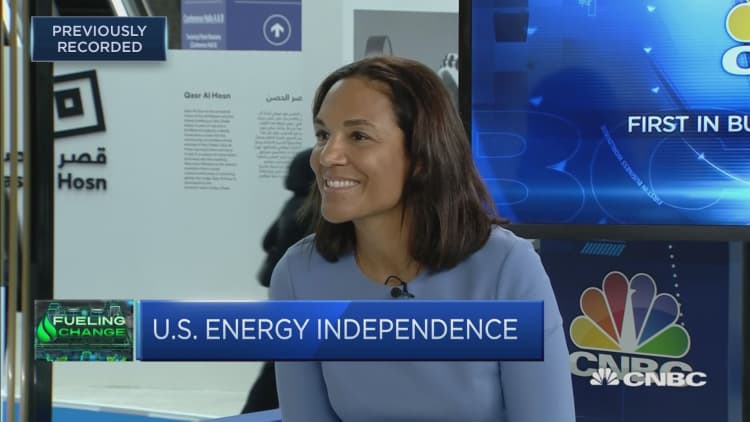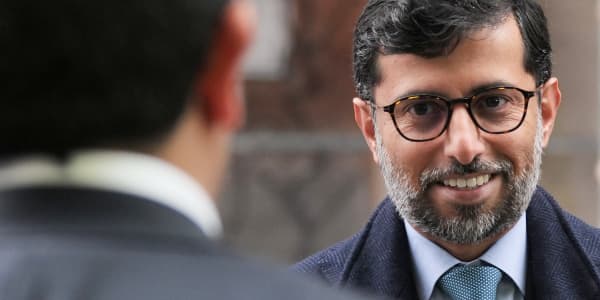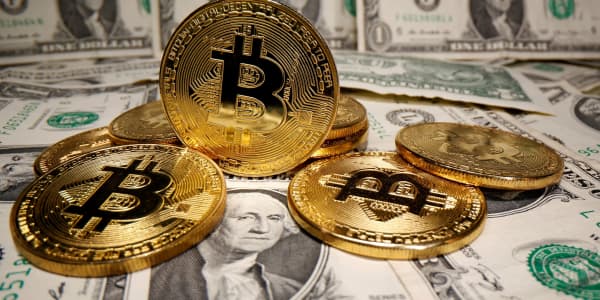Iraq is descending into its most violent days since the battle against ISIS concluded in late 2017 — and the world is completely underestimating its significance, regional experts told CNBC at the Middle East's premier oil and gas conference this week.
The second-largest OPEC producer has seen protests every summer for the last several years over economic grievances, met time and time again with empty government promises of reform that go unfulfilled. But this year's demonstrations are different, spilling over into demands for a full-on political overhaul and attracting elements like Iranian-backed forces and other extremists that threaten to hijack the protest movement and potentially bring the U.S. into deeper involvement.
"From a security perspective, I would say that the Iraq story is the most under-covered story in the region right now," Amos Hochstein, former special envoy for international energy affairs under the Obama administration, told CNBC on Wednesday.
"Because the forces that are outside, the external forces that have decades of interest (in Iraq) are not going to go away quietly. They will affect the economics of the region potentially, and they can affect the security beyond the region of Europe and eventually the United States."
Some 300 people have been killed and more than 2,000 injured as protests rocking the country of 38 million draw a harsh response from state security forces and other unidentified entities. Authorities have taken extreme measures like shutting down the internet and using live ammunition against protesters in an attempt to crack down on the uprising.
Amnesty International has described the government response as "nothing short of a bloodbath."
Protesters report plainclothes snipers shooting and killing civilian demonstrators, with many Iraqis pointing to Iranian-backed paramilitary fighters or "anonymous thugs" as some of the forces sowing further violence and confusion.
What we do know is that our adversaries, both groups like ISIS, al-Qaeda or Iran, thrive in chaos and a vacuum. What we're seeing in Iraq today is vacuums being created and then occupied.Amos Hochsteinfmr U.S. special envoy for international energy affairs
Iraqis across the country, particularly in Baghdad and cities of the country's oil-rich south, are angry over grievances that lie at the heart of protests similarly taking place in Lebanon and Algeria: rampant state corruption, high unemployment, and a lack of basic services provision.
Iraqi cities regularly suffer power cuts, garbage is left uncollected and there is a broad consensus that the state serves the interests of the elites, not the people — and all this in a country that is a major crude oil producer, sitting on the world's fifth-largest proven oil reserves and pumping nearly 5 million barrels per day. Its southern Basra province, afflicted with some of the worst poverty and lack of public services in the country, hosts international oil hegemons like Exxon, BP and Total.
Rocket attacks on US forces?
The comments come just days after 17 Katyusha rockets were fired at an Iraqi military base south of Mosul that houses U.S. troops. Some 5,000 American troops remain in the country, providing training and security assistance and supporting a U.S.-led coalition fighting what remains of ISIS.
Responsibility for the rocket attack has not been claimed and no casualties have been reported, but commodities expert and former CIA analyst Helima Croft sees this as a dangerous risk that could bring the U.S. into further confrontation with Iran. Hardline Iranian-backed Iraqi militias regularly threaten to attack Americans inside the country.

"If they hit that base and if you had dead U.S. servicemen, that would certainly be a red line where we could be hitting something in Iran, could we be bombing (Iranian port) Bandar Abbas? Potentially," Croft said. "Iraq is where I think this whole thing comes to a head."
The rocket attack, and protester anger at the corruption bred in a government system the Americans helped set up, is a sobering reminder that 16 years after its invasion, the U.S. remains tethered to the turbulent story of Iraq.
'If you break it, you own it'
The protesters in Iraq are also fed up with foreign influence in their country's affairs — many protest signs and chants say "No America, no Iran." Observers say this presents a threat to Iran's deeply held influence in the country, something that Tehran is not likely to take lightly.
"You have a battle for who is going to win the proxy war in the Middle East," Croft said. "Think about Lebanon and Iraq, these two places where Iran has a strong foothold. The question is, are they going to want to surrender their foreign policy and strategic influence? I don't think they will."
For Hochstein, who opposed the 2003 U.S. invasion of Iraq, the U.S. has a serious responsibility — and the Donald Trump administration is ignoring it.
"There is a basic rule of if you break it, you own it," Hochstein said. "It was us who broke it. And the consequences of that, we are living through today."
The solution, the former diplomat believes, is engagement — but that doesn't need to be boots on the ground.
"We have come to this dichotomy now, we've come to this extreme where it's either we have to be involved, meaning troops, or the alternative is nothing. And that is not the case here. What we're seeing now is that during the Trump administration, we're seeing no troops and no diplomacy."
Hochstein stressed the need for American engagement to "at least put the path of dialogue on the table so that you can see a horizon for solutions, versus a total absence from the scene that allows the protests and the violence to take on a life of its own."
"And then you don't know where it ends. And what we do know is that our adversaries, both groups like ISIS, al-Qaeda or Iran, thrive in chaos and a vacuum. What we're seeing in Iraq today is vacuums being created and then occupied. And the more we retreat, both militarily and diplomatically, the more vacuums we're creating to be occupied by our opponents."
'All of them out'
Former Secretary of State Condoleezza Rice, speaking at the Abu Dhabi International Petroleum Exhibition & Conference (ADIPEC) this week, told CNBC, "We certainly have a responsibility in Iraq."
"The Iraqi situation is one I have great sadness for because I think the Iraqis have a chance to govern wisely. Unfortunately they've not really delivered the services the people expect, the jobs people expect," she said.
Rice was a leading proponent of the 2003 Iraq invasion, and remains a controversial figure from the Bush administration. Critics of the Iraq War say the former diplomat remains responsible for the chaos and violence that engulfed the country as a result.

Iraqi Prime Minister Adel Abdul Mahdi, who came to power only a year ago, has promised more public sector jobs and limited economic reforms, but the pledges have failed to satisfy popular anger. The U.S. embassy in Baghdad on Sunday called for new elections, but Iraqis protesting say that will only result in the same faces reappearing in power. The leaderless movement has seen demands ranging from a new generation of leaders to a return to military dictatorship.
"It reminds me of what we saw in Lebanon — protester demands have morphed into 'all of them out'," Croft said, referring to the mass protests sweeping neighboring Lebanon where citizens are calling for the removal of the entire political class. She noted the same happening in Algeria, where popular protests have endured since last spring.
"'All of them out' seems to be a movement sweeping across the region. And I think this is an under-reported story," Croft said. "A movement sweeping across the Middle East."





